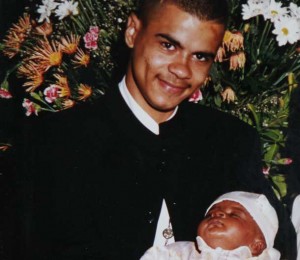“Your voice, your opinion” – not so much. Bars For Change, extremism and islamophobia
- September 3rd, 2011
- By agentofchange
- Write comment
The first two episodes of ‘Bars For Change’ (on police accountability and government cuts) were excellent. Jody McIntyre, Windfall Films and the various artists involved (including Durrty Goodz, Ghetts, Logic, Lioness and DVS) did a really good job giving voice to the opinions and frustrations of young people in our communities. The timing of the episodes was spot-on: the one on police accountability came soon after the high profile death in police custody of reggae star Smiley Culture; the episode on the cuts came soon after England’s streets exploded in spontaneous uprising against poverty, discrimination and marginalisation.
Unfortunately, the third episode, released this evening on YouTube, puts forward a very different message. Although it was originally planned to be focused around the rise of the fascist English Defence League (EDL), it seems Windfall Films made an executive decision to turn it into a film about ‘extremism’ in general. The result, I would argue, is a film that reinforces islamophobia and discourages political dissent.
Because of these problems, Jody McIntyre publicly dissociated himself from the film, saying on his Facebook page:
“I think a lot of people will be very disappointed with the Bars For Change film that will apparently be released this eve. This is what happens when attempts are made to co-opt voices of dissent.”
And further:
“The film Bars For Change have just released makes me feel sick. Racism and white supremacy, once again given a cloak of legitimacy…”
The program starts by uncritically quoting the government’s definition of extremist groups.
“Extremist groups oppose democracy, British law, individual freedoms, and respect for other faiths”.
The film-makers missed the opportunity to make the very obvious point that, given Britain’s role in illegal wars against Muslim countries, this definition is an excellent fit for the British state.
The show does a reasonable job of exposing the hypocrisy and idiocy of the EDL. Fascists are shown saying obviously stupid things. “I don’t want my children to grow up eating halal food.” (OK, well, don’t give them halal food then, you twerp). Where it goes wrong, however, is when the obscure Muslims Against Crusades (MAC) group is presented as some kind of dark-skinned equivalent of the EDL. A small group of Muslims is shown shouting the slogan “Sharia for UK” and then talking about how it is destiny that the whole world shall be ruled by Islam.
We then get the voice of reason from a “former extremist”, Matthew Collins, who comes out with this pretty extreme statement:
“The EDL and the MAC are exactly the same as each other. MAC don’t speak for the Muslim community; the EDL don’t speak for the English.”
The EDL and the MAC are *not* exactly the same as each other. The MAC is a tiny and obscure political scarecrow that has been frequently used by the right-wing press to make people terribly worried about these nasty brown folks that want to force the good people of England to wear burqas. The resulting hysteria feeds hugely into the culture of Islamophobia that divides our communites and that builds support for the wars being waged by the British state in Iraq, Afghanistan and Libya.
Muslim extremism is *not* a major problem on our streets; English fascism and Islamophobia *are* real problems. Muslims are being violently attacked, vilified and discriminated against.
Furthermore, English fascism and Muslim extremism are very different social phenomena. EDL-type fascism is simply the paramilitary extension of the existing racist, anti-poor, anti-immigrant power structure; its views are informed by mainstream ideology (read the Daily Mail and you’ll see what I mean). Muslim extremism, on the other hand, is a resistance identity, an interesting by-product of our society’s colonialist and racist mentality.
In fact, the Muslim ‘fundamentalists’ in this country are generally speaking inspired by those radical Islamic groups around the world fighting courageously against neo-colonialism (Hezbollah is a good example). It is worth noting that this radical Islam became popular in the wake of the crushing of the secular nationalist resistance in the Middle East, perpetrated by Arab ‘elite’ at the instigation of their western puppet-masters in Britain, France and the US. So if you look deep enough, even the presence of a few guys in England calling for Sharia law can be traced to imperialist policy and the thirst for oil!
The artists (Black the Ripper, RoxXxan and Mikill Pane) clearly try to steer the programme towards a positive conclusion of communities needing to unite, but the film-makers force it back towards a stern warning against all forms of extremism. Given that the only definition of extremism we have been given is the government-supplied one quoted above, doesn’t this message tend to support the status quo? Does it not perpetuate the myth of British democracy?
People called Nelson Mandela and Steve Biko extremists. They called Malcolm X, Huey P Newton and Angela Davis extremists. They called Nasser and Ho Chi Minh extremists. “Extremism is bad” is a dangerous message, because we live in a society which is ‘extremely’ messed up, and we may need some ‘extreme’ measures to move forward!
Imperialism is the ‘extreme’ domination of the world’s resources, land and people, by means of ‘extreme’ force. Move against it by any means necessary.
—
Jody’s statement can be read here.

